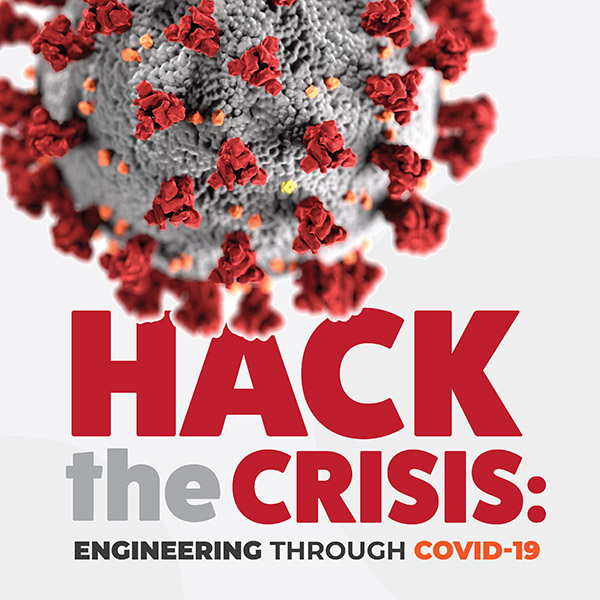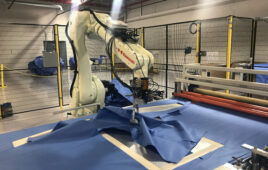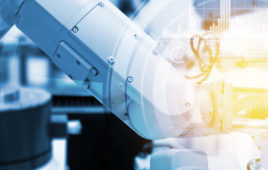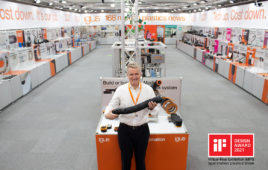 Robotics and automation from Germany cannot escape from the economic consequences of the corona crisis: The outlook for 2020 given before the outbreak of the pandemic is likely to weaken considerably — VDMA R+A is currently expecting a drop in sales of at least 20%. Originally, a decline of -10% had been predicted. In contrast, the fundamental growth prospects of the industry are positive for the time after COVID-19.
Robotics and automation from Germany cannot escape from the economic consequences of the corona crisis: The outlook for 2020 given before the outbreak of the pandemic is likely to weaken considerably — VDMA R+A is currently expecting a drop in sales of at least 20%. Originally, a decline of -10% had been predicted. In contrast, the fundamental growth prospects of the industry are positive for the time after COVID-19.
“The current uncertainties do not allow for a precise forecast for the current year,” said Wilfried Eberhardt, Chairman of VDMA Robotics + Automation. “However, the industry’s turnover before the outbreak of the pandemic was better than initially assumed, as the annual statistics for 2019 show. Robotics and automation from Germany recorded the second-highest turnover to date, at 14.7 billion euros, with a slight decline of 2% compared to the previous year. Originally, -5% had been forecast.”
The three sub-sectors in comparison
The sub-sectors of robotics and automation developed differently in 2019: integrated assembly solutions recorded a 4% drop in sales to 8 billion euros. Sales in robotics fell only slightly by 2% to 4 billion euros. Machine vision, on the other hand, was able to grow slightly: Industry sales rose by 1% to 2.8 billion euros.
New tasks for robotics and automation
As a result of the Corona pandemic, robotics and automation has faced new challenges: The companies are delivering numerous new solutions in the fight against COVID-19 in record time, and very flexible production lines have been set up for the mass production of respiratory masks and laboratory products. Vaccine development and mass testing benefit from the advances in lab automation. Disinfection robots are used in hospitals. Even communication robots are making their contribution by virtually bringing family visits to nursing homes where visits are currently restricted. “Robotics and automation has responded to the Corona challenge with great commitment and creativity and impressively demonstrated how flexibly the technology can be used,” said Patrick Schwarzkopf, Managing Director of VDMA Robotics + Automation.
Robots are immune
New rules for infection protection require minimum distances between people — also in manufacturing. This is where robots or automated process steps are helpful in organizing the production floor. Collaborative robots (cobots) that work directly with humans can demonstrate their strengths here. They assist humans at close range without any risk of infection. Robotics thus contributes to safe and flexible production. In addition, the increase in shopping online makes the use of robots in logistics increasingly attractive.
Digitalization boost not only for the home office
The corona pandemic will prove to be a veritable accelerator of digitalization. As in the office environment, new technologies must be introduced quickly in production — for example, for remote maintenance and virtual commissioning of complex systems. “Digital services, which were already available before the Corona crisis, have suddenly become indispensable and put users and providers on a steep learning curve. This advances the smart factory and provides robotics and automation with an important long-term growth incentive,” said Wilfried Eberhardt.
New potentials after COVID-19
The Corona crisis has highlighted how vulnerable industrial production has become in global value chains. The realization that more resilience is required opens up new potentials for robotics and automation. Supply chains are being rethought and the manufacture of critical parts and products will be done more locally — and with an increased share of internally produced components. This can only be implemented economically with a higher degree of automation. New production technology is also needed for attaining higher levels of sustainability, carbon neutrality and alternative powertrains for future mobility. There are also considerable catch-up effects from previously postponed investments. All of these factors will fuel demand in robotics and automation in the post-Corona era and thus offer the industry excellent prospects for the future.
Leading event in December
Robotics and Automation is particularly looking forward to the leading trade fair automatica, which will take place in Munich from December 8-11, 2020. “Following the decision of the Bavarian state government to allow trade fairs to be held again from September 1, 2020, the industry is looking forward to the automatica with optimism. The preparations are in progress. We expect a significant boost for business from our leading trade fair,” said Wilfried Eberhardt.
Filed Under: Fighting COVID-19




